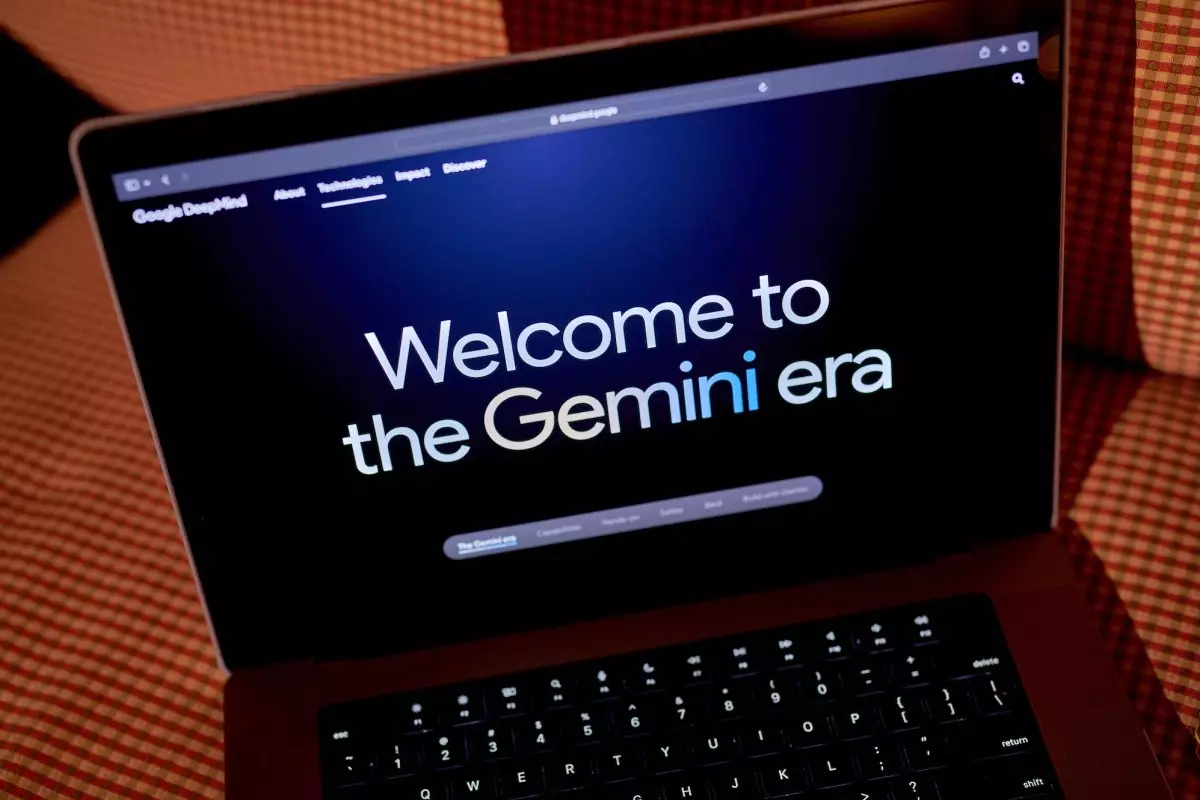In the ever-evolving world of artificial intelligence, companies are not only striving for innovation but are also deeply entrenched in a competitive race to enhance their models. Recently, internal communications revealed that Google is drawing comparisons between its Gemini AI and Anthropic’s Claude. This raises questions about testing methodologies, ethical standards, and the regulatory frameworks governing AI technologies.
As Google continues to develop its Gemini AI, it has recruited contractors to systematically evaluate the model’s responses against those provided by Claude, Anthropic’s advanced AI. This practice is somewhat conventional in the technology industry, where quality assurance can often hinge on how a product performs against its most significant competitors. However, the choice to use Claude as a benchmark has sparked conversations regarding compliance with intellectual property laws and testing ethics. Internal documents suggest that contractors are dedicating up to thirty minutes to scrutinize and score answers based on criteria such as accuracy and completeness. This extent of analysis suggests a persistent commitment to refining Gemini’s capabilities but raises the issue of how ethical these direct comparisons are without appropriate permissions.
Interestingly, feedback from contractors reveals that Claude tends to prioritize safety more rigorously than Gemini. One contractor even noted that Claude’s safety protocols are unparalleled among competing AI models. For instance, when prompted with certain role-playing scenarios, Claude opted not to engage if it deemed the prompts unsafe. In sharp contrast, a response generated by Gemini was flagged for being a severe safety violation, highlighting a lack of adequate safety filters. Such discrepancies not only pinpoint the strengths and weaknesses of each model but also expose the critical necessity of embedding ethical considerations into AI’s programming. The contrast between the two models raises an essential question: how should AI frameworks balance creativity and user engagement against ethical safety measures?
Anthropic’s commercial terms explicitly restrict users from leveraging Claude to create rival products or training competing AI models without authorization. With Google being a prominent investor in Anthropic, this intersection of business interests complicates the narrative. Despite requests for clarity surrounding whether Google acquired Anthropic’s permission to test Claude, official comments refrained from providing a definitive answer. This reticence can congeal speculation over the integrity of Google’s operations, drawing attention to how vital transparency is in an era where public trust is integral to the acceptance of AI technologies.
Beyond ethical inquiries, contractors working on Gemini face unique challenges, especially concerning tasks that exceed their areas of expertise. Concerns have surfaced regarding the potential for Gemini to disseminate inaccurate or even dangerous information, particularly in sensitive fields such as healthcare. These apprehensions don’t just signify personal doubts among contractors; they reflect broader societal concerns about the implications of misinformation generated by AI models. The responsibility placed on these individuals raises questions about the adequacy of training and support systems, suggesting that a more comprehensive approach to the development and testing of AI is necessary.
The internal comparison of Google’s Gemini and Anthropic’s Claude captures the essence of today’s AI landscape, riddled with fascinating innovations, competitive strategies, and ethical dilemmas. The complexity of their relationship emphasizes the necessity for clear boundaries and agreements as tech companies seek to innovate. Establishing a balance between performance, safety, and ethics remains critical as these giants push the envelope in artificial intelligence development. Without addressing these crucial aspects, the quest for AI dominance could compromise both ethical standards and user safety, ultimately affecting the broader societal trust in such technologies. As the race to refine AI continues, understanding these dynamics will be essential for ensuring a responsible and sustainable future for the industry.

